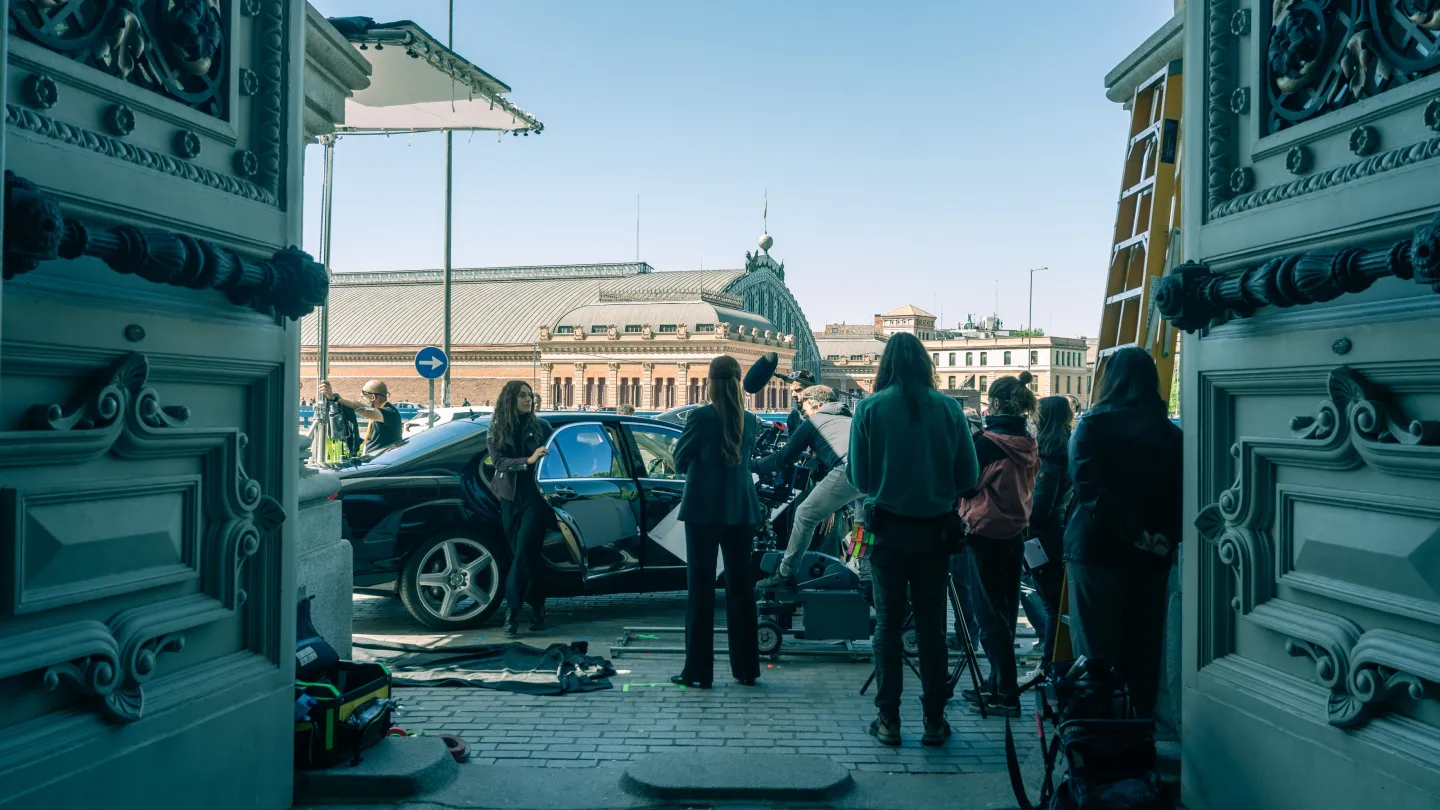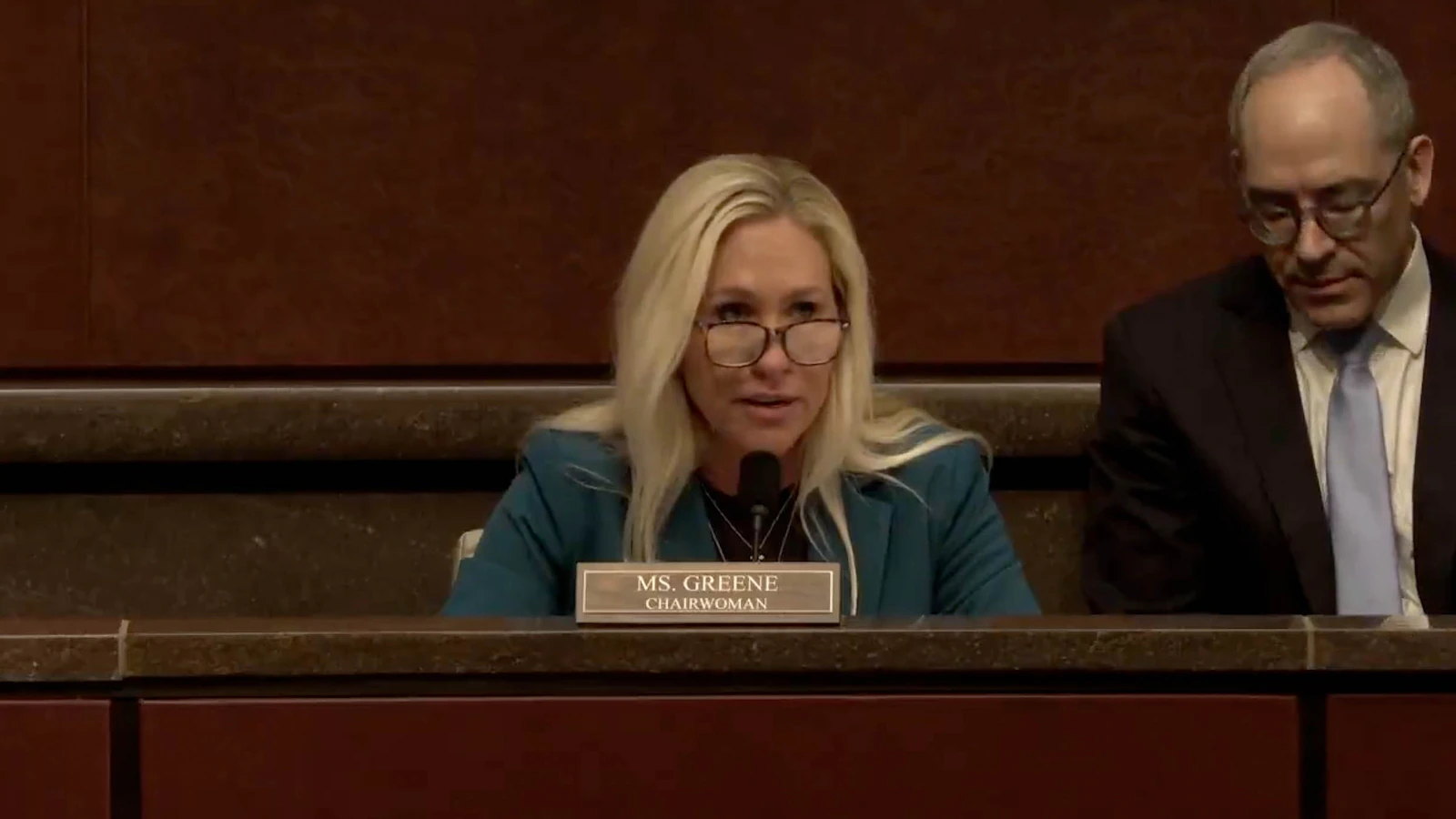
For film and TV production folks in the know, Madrid will need no introduction. But others may only have enjoyed Spain’s capital on screens from afar, just like fans of such series as Netflix’s Money Heist and spin-off Berlin, AMC‘s The Walking Dead: Daryl Dixon and such movies as Universal’s The Bourne Ultimatum.
Attracting even more productions to the city and its metropolitan area, which has a population of nearly seven million people and is home to Netflix’s Spanish hub, is one of the jobs of Raúl Torquemada, director of the Madrid Film Office, who will be among the busy attendants of this week’s fifth edition of Iberseries & Platino Industria, which brings Spanish- and Portuguese-language content creators and executives from Europe, Latin America and the U.S. to Madrid.
Torquemada talked to THR about the state of play in the Spanish capital, the latest productions that have chosen it as a location and more.
How has the appeal of Madrid as a production hub changed over the past year? Any changes to financial incentives or qualitative support programs?
Madrid has strengthened its position as one of Europe’s most attractive production hubs. Support through Madrid Film Office, which depends on the Tourism Area of the Madrid City Council, grew by 18 percent in 2024, while the city consolidated its role as host of flagship events such as Iberseries & Platino Industria, the Platino Awards and [international co-production market] ECAM Forum.
At the same time, the City Council has expanded its audiovisual grants program, €3.0 million ($3.5 million) annually, expandable to €4.0 million ($4.7 million), with a dedicated share for international co-productions, and launched the Madrid Audiovisual Cluster to drive public–private collaboration. More than €8.0 million ($9.4 million) has also been allocated through CREA SGR [which acts as a guarantor to banks, allowing its members to obtain loans and credits under advantageous conditions] to facilitate project financing.
Beyond funding, Madrid is investing in talent and training, supporting initiatives such as the Film Academy Residencies, TorinoFilmLab and the European Writers Club. These efforts underscore the City Council’s strong commitment to the growth and sustainability of the sector, with the clear ambition to position Madrid as an innovative and competitive hub for the global audiovisual industry.
Which new or returning series or films shot in Madrid since last year’s Iberseries?
Over the past year, Madrid has hosted major international productions, such as The Walking Dead: Daryl Dixon, which established its operations base in the city and filmed in several locations that doubled as post-apocalyptic London and Spanish settings, and celebrated its world premiere in Madrid. Other international shoots include Day Drinker, directed by Marc Webb and starring Johnny Depp and Penélope Cruz; The Beast with Samuel L. Jackson; and Diego Luna’s Ceniza en la boca.
On the national side, standout projects include Anatomía de un instante (Movistar Plus+), extensively filmed inside the Spanish Congress, Pedro Almodóvar’s Amarga Navidad and Los Javis’ La bola negra.
In television, Madrid continues to attract global hits, such as Netflix’s Berlin, The Head, a Spanish–Japanese co-production between The Mediapro Studio and Hulu Japan, Prime Video’s Reina Roja, adapted from Juan Gómez-Jurado’s bestselling novels and produced by Mexican company Dopamine [now also based in Madrid] together with Focus Studios, and El Inmortal.
These projects highlight a growing trend of co-productions with Latin America, from La increíble historia de Julia Pastrana on Disney+ to Isla Brava on Vix. For us, this reflects a strategic role of Madrid as a creative bridge between Spain, Latin America and Europe, which we actively promote through events like Iberseries & Platino Industria, ECAM Forum and the Platino Awards.
Why has Madrid been so successful in attracting film and TV shoots and companies?
Madrid has become one of Europe’s leading content production hubs thanks to a combination of strong industry, diverse locations and institutional support. The city is home to a robust ecosystem of producers, service companies and highly skilled professionals, now reinforced by the Madrid Audiovisual Cluster, which fosters public–private collaboration across the sector.
Madrid Film Office works daily to support productions, coordinating with city services to streamline permits and promote filming across all 21 districts. This diversity of spaces, like streets, parks, heritage buildings and soundstages gives Madrid unique flexibility and scale, while also spreading economic benefits across the city. And beyond its iconic landmarks, there is still much of Madrid left to discover, offering fresh and unexpected backdrops for future productions.
Equally important is the commitment of public institutions, with the City Council backing productions through grants, training programs and flagship industry events such as Iberseries & Platino Industria, ECAM Forum and Animario Pro. This alignment has already proven successful. Madrid talent and stories reach global audiences with titles like Money Heist, while major platforms, such as Netflix, HBO Max, Disney+ and Prime Video, have chosen Madrid as a base of operations.
How have the facilities and service providers for the audiovisual industry in Madrid grown?
In recent years, rising investment in audiovisual production has driven the expansion of major infrastructure in Madrid. Madrid Content City has already become one of the largest audiovisual hubs in Europe and is now entering phase IV of its expansion, expected to be completed by 2026. Toboggan Group has also begun work on a 30,000-square-meter production hub in Villaverde, the first of three phases that will create 15 centers across the region.
At the same time, several companies are developing new facilities to meet demand. EFD Studios is building a 2,000-square-meter virtual production space, Nonstop has acquired a 1,000-square-meter studio, and Infinia is upgrading its facilities with cutting-edge technology for virtual production. These are joined by established players, such as Elamedia and Adisar Media, which continue to strengthen Madrid’s industrial base.
Madrid is also becoming a leader in VPX [Virtual Production Extensions] and real-time virtual production. Orca Studios has opened a state-of-the-art facility equipped with the latest technology, while Mr Factory is specializing in photorealistic 3D environments with cinematic quality. Together, these projects confirm a sector that is rapidly diversifying and scaling up, positioning Madrid to host increasingly ambitious and innovative productions.
What are some of the key numbers Madrid has hit in terms of TV and film productions in recent years? Any records?
Over the past decade, Madrid has consolidated its position as a first-class production center, with a steady increase in the number of projects filmed in the city. In audiovisual fiction alone, the volume has doubled, from around 20 films and 20–30 series seasons annually at the beginning of the last decade to more than 40 films and 50–70 series today.
In 2024, Madrid hosted 41 films, 53 series and over 430 commercials. The momentum has continued in 2025. In just the first seven months, the city has already welcomed more than 636 medium- and large-scale projects, including 46 fiction films — surpassing the total for all of last year — 33 series, and over 260 commercials.
International co-productions are also gaining ground, particularly with Latin America. Since 2023, we estimate 16 feature films and 10 high-end TV series have been filmed in Madrid in collaboration with Latin American companies. With global platforms, such as Netflix, Prime Video and HBO Max basing their productions in the city, Madrid has become a truly international ecosystem where national and international talent converge.
Is there anything else you would like to highlight?
I would highlight two additional points. First, the importance we place on data to better understand the scale and impact of Madrid’s audiovisual industry. Reliable figures allow us to measure both the economic and cultural reach of the sector and to guide public policy as well as public–private collaboration.



